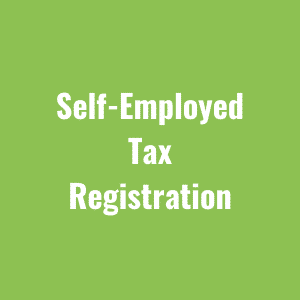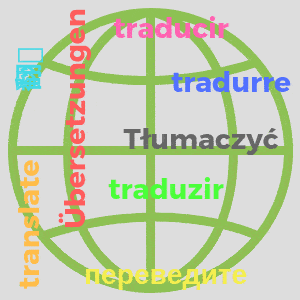How to become a freelancer in Germany
Last update: April 2021
[This Guide is not for self-employed owning a business (Gewerbe), but for freelancers with "non-commercial" activities (Freiberufler)]
How to become self-employed in Germany
Can I be a freelancer in Germany (Freiberufler)?
As per the Income Tax Act (§ 18 I Nr.1 EstG) a freelancer work includes the following activities: Independent scientific, artistic, literary, teaching or educational activities, and the independent professional activities of physicians, dentists, veterinarians, lawyers, notaries,...
Here is a non-exhaustive list of freelancing professions:
Choreographer, designer, photographer, cameraman, artist (visual and performing), musician, director, singer, actor, writer, dancer, copywriter, interpreter, translator, journalist, reporter, photo-journalist, video-journalist, historian, architect, urban planner, interior designer, landscape architect, pilot, biologist, chemist, geographer, computer scientist, engineer, surveyor, restaurateur (with university degree), notary, patent attorney, lawyer, business consultant, economist, tax consultant, tax agent, doctor, psychotherapist, veterinarian, dentist, pharmacist, physiotherapist, masseur, dietitian, teacher, lecturer, educator, kids nanny, programmer (freelance work for another company), customer services agent (freelance work for another company),...
Important: Please be aware that the field of activity is what counts and not the qualification. An architect running a construction firm will normally not be considered as a freelancer. Ultimately, the tax office decides whether the activity is "commercial" or categorized as a "liberal profession". It is often a case by case situation!
Advantages of being a freelancer (Freiberufler)?
- No business tax to pay
- No trading tax to pay
- Registering with the Chamber of Commerce (Gewerbeamt - IHK) is usually NOT necessary. However, some freelancers are compulsory members of their local chamber. Please check out whether your profession requires membership or not.
Freelancing in Germany in 7 Steps
In order to start your own work as a self-employed in Germany (which also includes doing contract / freelance work for another company) you will need to follow these 7 steps:
Apply for a Visa (from outside of Germany)
It only makes sense to apply for a freelancing visa if you already have 2 employers!
As an EU citizen, you can live, work and study in Germany without any visa or permit restrictions
As a citizen from Norway (EEA member state) or Liechtenstein (EEA), you can also live, work and study in Germany without any visa or permit restriction.
Citizens from Iceland (EEA) & Swiss nationals can also live, work and study in Germany without applying for a visa but, once in Germany, they may apply for a residence permit at the Ausländerbehörde in their town of residence.
Note: The residence permit issued to Swiss nationals and their family members merely certifies the right to freedom of movement. If you are a family member of an EU or EEA citizen and therefore covered by the right to freedom of movement, you will be issued with a corresponding residence card.
If you are a citizen from a third-party country, read these 10 steps to sorting your German paperwork;
Important: We recommend you check these visa requirements before you take any further steps.
More details about visas for Germany.
Any questions? Please contact BAMF.
Look for a place to live
Your options are: Shared flats (Wohngemeinschaft – WG) or Private apartments.
Start looking for a place to live here: Apartment Listing Sites for Germany or use this free search engine to find a furnished apartment in Germany.
Registration in Germany
By law, you are required to fill in an Anmeldung form to register your residence at the local citizens' office (called Einwohnermeldeamt, Einwohnermeldebehörde or Bürgeramt). You have to register within 14 days of relocating to your new German address. Everyone living in Germany, even if temporarily, has the obligation to register/re-register at one of the many Bürgerämter.
If you are staying in a hotel and have not found a permanent residence yet, it is sometimes possible to register with your hotel address. However, most Bürgerämter will require a permanent address. Ask your hotel for further details.
You will need to provide the Bürgeramt official with a completed Anmeldung form, a confirmation letter from the landlord/main tenant and a valid ID or passport. At the end of the process, you will get proof of registration (called Meldebestätigung or Meldebescheinigung) from the Bürgeramt official. Do not lose this important document as you will need it, for instance, to open a bank account or apply for a tax ID. More info here.
When to de-register?
Only when you move abroad or move from a secondary residence back to the main dwelling.
Can I make an appointment?
Yes, you can (and you should!), directly on the Bürgeramt/Bürgerbüro website, but it's in German and it usually takes a few days or weeks before getting an appointment!.
More info about the Anmeldung: Anmeldung process explained.
Digital Registration Forms for FREE: Anmeldung forms available in various languages.
German Health Insurance
As a freelancer, your next step will be to obtain German Health Insurance.
While your overseas travel insurance was sufficient until you reached Germany, German insurance is mandatory while in the country. You cannot work in Germany unless you have German insurance.
You need to apply for it after registering at the Bürgeramt. There are two kinds of health insurance: public (for employees, students & artists registered with the KSK) and private (for employees earning more than a certain threshold & freelancers).
For freelancers, the best solution would be to go private, also because it would be very difficult to get accepted into the public one being a freelancer and, even if you get accepted, would be an expensive choice if you don't have a regular, good income. The best solution is to contact an insurance adviser based in Germany who will give you free advice and a free quote based on your personal situation.
myGermanExpert doesn't recommend International Private Insurances as the German Private Insurance Association (PKV) doesn't consider international insurances good enough for the German system! So be very careful as, one day, international insurances could NOT be authorized anymore in Germany!
[For women] Whatever private insurance you choose, make sure it includes pregnancy coverage as it is required to get your residence permit approved.
If you can afford it, we also advise you to get an additional dental insurance plan as it can be very expensive to get some dental treatments not covered by your insurance.
We all know that choosing the right health insurance is not easy, especially with private health insurance. If you want, you can get help from an independent health insurance broker. Get a free consultation here! It's totally free for you.
For further details, read also our Complete Guide to Health Insurances.
Open a Bank Account
If you speak German and do not mind banking fees, you can just search for a bank near you and join during opening hours.
Alternatively, you can open a bank account online for FREE with N26 (all in English) which includes a Free Mastercard (debit).
With the N26 bank account, you only need a webcam/ phone camera and your passport. NO proof of residence registration (Anmeldung), tax ID or minimum deposit is necessary!
Apply for a Residence Permit [If applicable, refer to point 1]
If you want to freelance in one of the independent professions (freie Berufe), apply for a residence permit that will allow you to exercise this kind of activity (if applicable).
To do so, you will usually need to provide your CV, your final examination diploma, a description of the activity you intend to take up, a financial plan, a permit to work in your field (if applicable) and proof of health insurance coverage (incl. a certificate provided by your German health insurance stating all that you are covered for). We recommend that you ask your local Ausländerbehörde (foreign residents’ registration office, also called LABO) which additional documents you have to submit.
Initially, the residence permit entitling you to work as a freelancer is temporary. If your business idea is successful and you are able to support yourself (and your family), there will be no problem with getting your residence permit extended.
If you work as a freelancer, you do not have to register with the chamber of commerce (Gewerbeamt). For more info, please contact Make it in Germany.
Fill in the application form to get a 'freelancer' tax number and a VAT number
The Finanzamt will take about two to three weeks to send your "Freelancing" tax number by mail to your registered German address. This number will have to go on your invoices.
Here is the German-language online form to fill out in order to become self-employed: Freelancing Form. Once opened, this link will be valid for only 45 minutes, so make sure to save it and print it before this time elapses. Alternatively, you can use this Freelancer Form in a pdf format and download it.
Once completed, bring the form to your local Finanzamt. Search for the address here: Finanzamt Directory. Select "Finanzamt" and insert your postcode (ZIP code).
Highly Recommended:
An easier and quicker solution to get your Steuernummer and your VAT number would be to use the services of this company. If you do not understand German, you can fill in for FREE the freelancer application form (Fragebogen zur steuerlichen Erfassung) online and in English. Once you are ready, they will take care of submitting it directly to the Finanzamt through the official ELSTER interface. You can also file your VAT and tax return with them.
Note: You can start sending invoices to your clients once you get your "freelancer number" (= Steuernummer) and/or your VAT number.































0 Comments